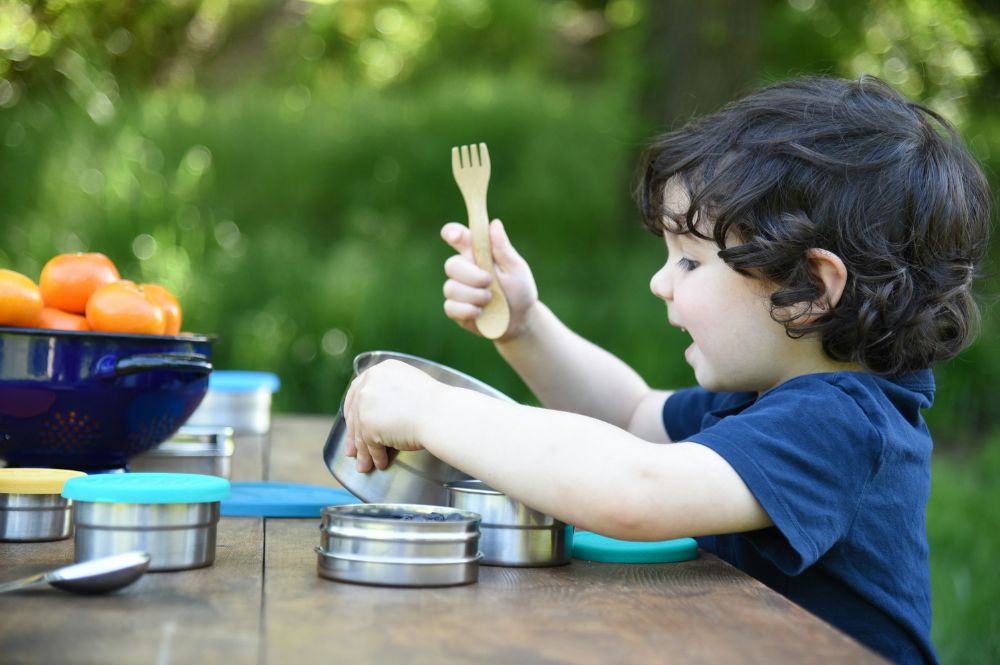
Teaching good habits and life skills to young children early on lays a peaceful foundation for your homeschool days. As Charlotte Mason emphasized, “education is an atmosphere, a discipline, a life”—and that discipline begins with habits formed in everyday moments.
When kids learn to dress themselves, tidy a space, or follow simple routines, they build the kind of self-governing habits that make home learning smoother and more joyful. These little acts of responsibility add up to a calmer, more cooperative homeschool rhythm—and a child who feels capable and confident in their place within the home.
It’s never too early to start bringing your little ones alongside you as you work. In fact, the earlier, the better! My 18-month-old loves to help me throw wet clothes into the dryer, put the wooden train set back into the bin, and carry stray items across the house. Is he a big help at this age? I think we both know the answer.
Teaching Life Skills to Young Children Shapes Character
It’s not until a few years later that children become more helpful when it comes to doing chores, but that’s not the main reason I like to start early. I invite them into the work not because I need the help, but because they need the training. I want them to understand from a young age that work is part of life.
God placed Adam in the garden of Eden and gave him the work of tending it before the fall ever took place (Genesis 2:15)! Work isn’t a punishment—it’s part of a meaningful life.
Work is not something to be feared, avoided, or dreaded. It’s meant to be embraced. There is immense satisfaction in a job well done! Work done to the glory of God is one way we can honor Him, even in the small things.
When we teach our children to work with a cheerful spirit, we’re giving them more than just a skill—we’re shaping their character. And that’s something we’re always working on around here!
“And whatever you do, do it heartily, as to the Lord and not to men, knowing that from the Lord you will receive the reward of the inheritance; for you serve the Lord Christ.”
—Colossians 3:23-24
You can start teaching some of these practical skills as early as age two. Others might be better suited for a six-year-old who’s ready for a little more responsibility. I’ve tried to place those toward the end of the list so you can find what fits your child best.
Just remember, teaching life skills to young children doesn’t have to be complicated—consistency over time pays off!
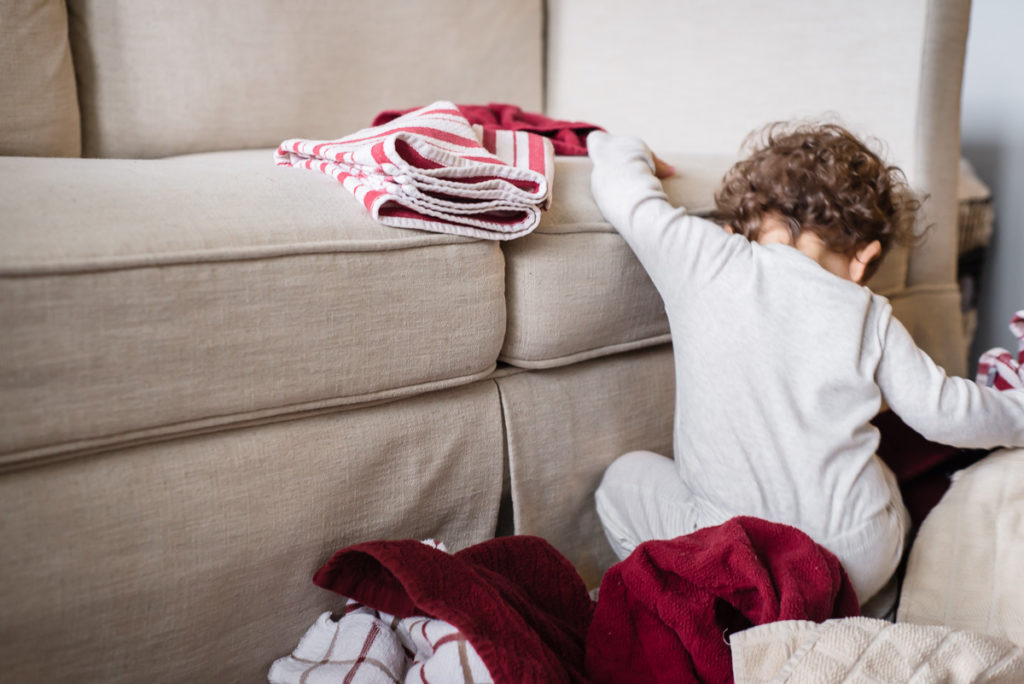
1. Sort Laundry
My boys have always enjoyed helping me sort laundry. I think they see it as a game. Sometimes, we’ll set a timer and see how fast we can get it done!
2. Hang Laundry
Learning to properly put a shirt on a hanger takes patience and time—especially if there are buttons involved. I’ve found that my kids are ready to learn how to hang laundry around age four.
I hang all of their shirts—except pajama tops—in their closet (none of them are folded), so it’s easiest for me to hang them as soon as they come out of the wash. This is something I plan to teach them how to do as they get a little older.
3. Fold Towels and Simple Clothing Items
The first things I show my children how to fold are washcloths and dish towels. At first, I end up refolding them later when they’re not looking, but eventually, they can fold them just as well as I can!
After they’ve got the hang of washcloths and dish towels, I teach them to fold their shorts and pants. Having reasonable, age-appropriate expectations is important here, but so is neatness. Over time, I train their eye so they can see what looks sloppy and what looks tidy. Just be patient and encouraging!
We use a “no-fold system” for our boys’ pajamas, underwear, and socks, so they can just run these piles to their rooms and stick them straight into the bins—no folding necessary.
You can turn matching socks into a game for toddlers and preschoolers.

4. Basic Kitchen Skills
There are lots of very basic kitchen tasks young children can learn—washing fruits and vegetables, making sandwiches, peeling fruit and boiled eggs, stirring, and pouring.
Check out my post, 10 Kitchen Skills Every Young Child Can Learn at Home, if you want some ideas.
5. Clear Dishes off the Table
Children are capable of bringing their own dishes to the sink around three years old. My four-and-a-half-year-old is currently responsible for clearing the rest of the table as well. Once everyone has brought their own dishes to the sink, there’s usually not too much left for him to do.
6. Wipe Dining Table
My four-and-a-half-year-old has also recently started wiping the dining table after mealtimes. He’s not very good at it yet—I usually have to show him what he’s missed or go over it again myself. But he’s getting practice, and I know he’ll be proficient before too long.
7. Set the Table with Utensils, Napkins, and Cups
Two-year-olds think setting the table is great fun! Seeing the haphazard place settings our toddlers come up with has made us laugh on many occasions!
As they get a little older, I teach them the proper places for napkins and silverware.

8. Help Pack a Lunch
When you need to bring a lunch somewhere, involve your kids!
Give them simple parameters to stick to: a main (sandwich, wrap, meat and cheese bites, leftovers, etc.), a fruit, a veggie, a snack, and a treat. This gives them flexibility to make their own decisions while also keeping the meal balanced.
Packing a picnic lunch together is an especially fun activity!
9. Learn Money Skills
Learning to wisely save and spend money is a practical habit that we can start teaching in the preschool years.
When children are given real opportunities to manage money—whether it’s setting aside money for a special goal or choosing how to spend their birthday money—they learn self-control, forethought, and stewardship. These lessons help encourage wise decision-making as they grow.
Teaching a child to live within their means and plan for the future is not just about finances—it’s about forming lifelong habits and strengthening the will.
It’s sobering to consider how many college students end up in massive debt, and how many marriages struggle because of poor money decisions. If we don’t give our children the tools they need to make wise money choices, who will?
A child who learns to wait, give, plan, and spend with care is developing skills that will serve them well into adulthood.
Labeling jars or envelopes with “Save,” “Spend,” and “Give” categories is a great place to start. We encourage our boys to tithe 10% of what they earn, but they’re free to decide where they want to put the other 90% at this age.
Our 8-year-old is a big-time saver, while the almost 5-year-old spends his money almost as quickly as it comes in! They’ll each need guidance as they grow—just in different ways.
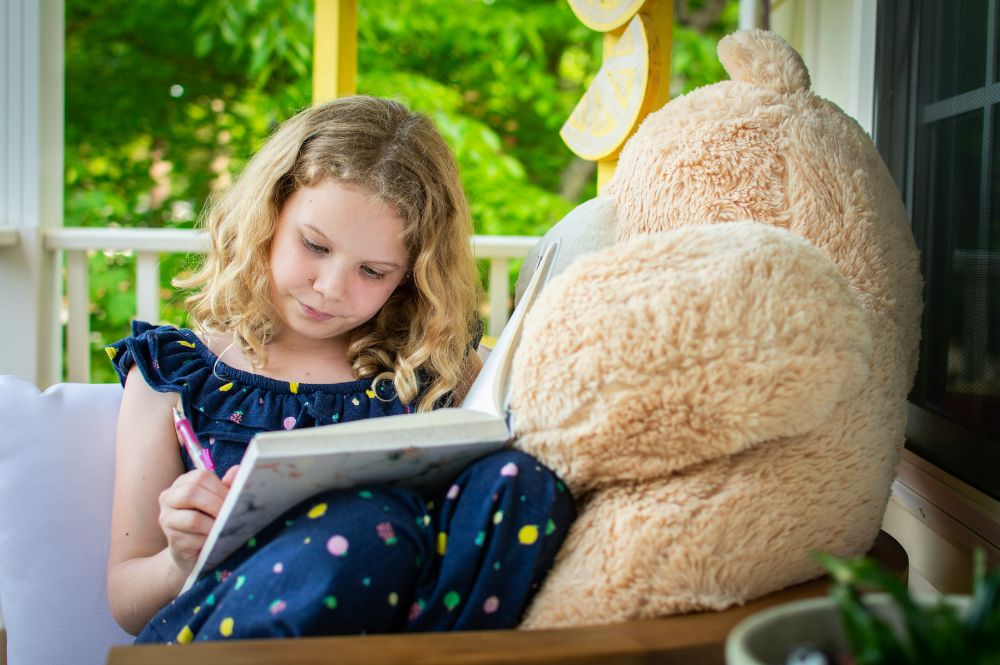
10. Help Make a To-Do List for the Day
There are days when we have a lot to get done, and I need everyone’s cooperation to make it happen. Creating a checklist for the day gets us all on the same page and helps teach both time management and follow-through.
We write the list together, and I make a point of asking the boys if there’s anything they think we should add to the list. They’re always eager to give their input. Writing with colored pencils and adding little drawings to the margins makes it more kid-friendly. Plus, I always make sure to add at least one fun “to do” so they have something to look forward to.
The boys love getting to help check things off throughout the day. They’re motivated to get the work done so we can get to the fun stuff!
11. Follow a Daily Routine Chart
Being able to follow a simple list or chart helps children learn responsibility.
Each of our older boys has a short list of tasks and chores they are required to complete first thing in the morning (i.e., make the bed, get dressed, empty the dishwasher or sort silverware, etc.). Our almost-kindergartener can’t read yet, so his list is picture-based, but our rising 4th grader’s has times listed alongside his tasks.
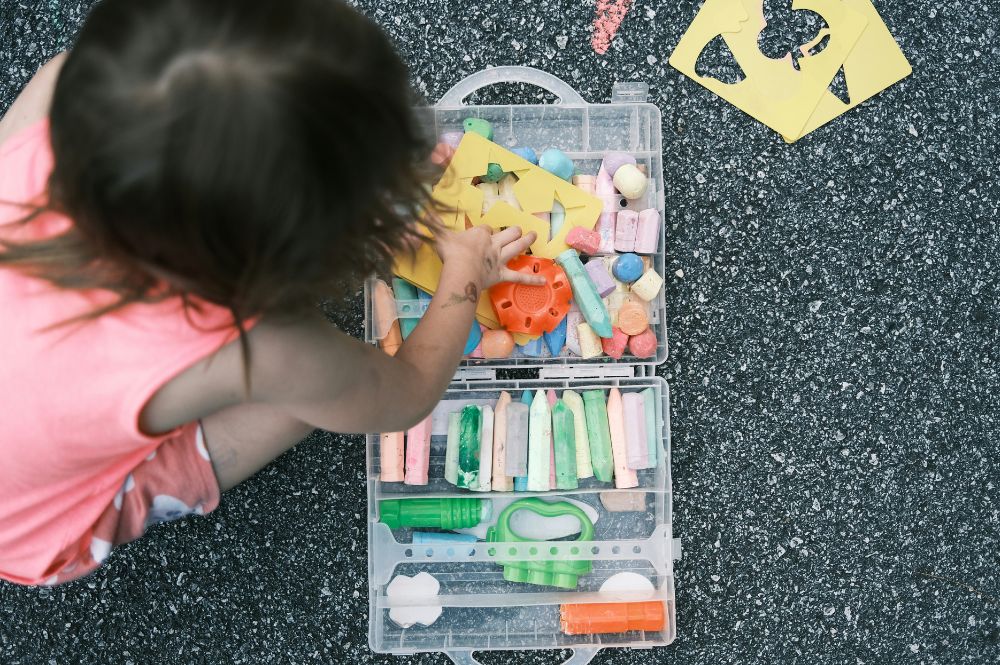
12. Decluttering & Organizing
It’s important for kids to understand how to organize and declutter their toys and possessions as they grow.
One way I help my boys learn how to declutter is by using the “one-container rule”. They each have their own basket for miscellaneous possessions (special toys, balls, marbles, treasures, etc.) and a bin for their artwork, craft projects, and polymer clay creations. Once either of these bins is at max capacity, they know something will need to be rotated out.
A few times per year, I go through their toys and belongings with them. Before (and after) Christmas and before school starts are my favorite times.
I also love finding opportunities for them to practice their organizational skills. My oldest son loves organizing things (he’s quite good at it), and I think it’s starting to rub off on my second-born.
Once their gem collection was too big to fit in a baggie, I bought them each a small tackle box and let them have at it!
Another tackle box keeps our crayons organized by color type (reds, blues, purples, etc.). This has made coloring more fun for them, and they’re motivated to keep it sorted properly.
In general, having the right tools makes organization more enjoyable, and regular practice helps keep those decluttering and organizing muscles strong.
13. Learning Proper Hygiene
Learning proper hygiene is an important life skill that helps children care for their bodies with respect and responsibility. From brushing teeth to washing hands, these small daily habits build a foundation for health, self-confidence, and consideration for others.
Teaching hygiene isn’t just about cleanliness—it’s about forming good habits that will last a lifetime.
14. Getting Themselves Dressed
Getting dressed independently helps young children build confidence and coordination. Managing buttons or zippers, learning to dress for the weather, and learning to tie their own shoes all take patience and practice. These may seem like simple tasks, but kids are developing important life skills, along with a sense of pride in caring for themselves.
My boys are free to choose their own outfits every morning (apart from church, special occasions, etc.). At the beginning of each season, I curate a simple capsule wardrobe for each of my children. We select a cohesive color palette so that most of the tops can be worn with most of the bottoms.
This simple system has worked wonderfully for us for quite a few years now! I’ve written a few posts about capsule wardrobes if your interested in learning more and giving them a try!
- The Life-Changing Magic of Baby Capsule Wardrobes
- Step-by Step Guide to Creating Capsule Wardrobes for Kids
- Detailed Toddler Boy Fall Capsule Wardrobe (with photos!)
- Toddler Boy Summer Capsule Wardrobe
15. Packing Their Own Bag for Outings
When kids learn to pack their own bag for outings—whether it’s for church, a park day, or a field trip—they’re learning to think ahead, take responsibility, and care for their own needs.
It gives them a sense of ownership and helps them practice planning and problem-solving in a real-life way. Over time, this habit builds confidence, independence, and the practical skill of being prepared.
At first, you’ll need to be more hands-on, checking to make sure your child hasn’t forgotten anything. But over time, you should be able to be more hands-off. Sometimes, it’s good for a child to experience the natural consequences of forgetting things they wanted to bring. It will teach them to be more thoughtful next time.
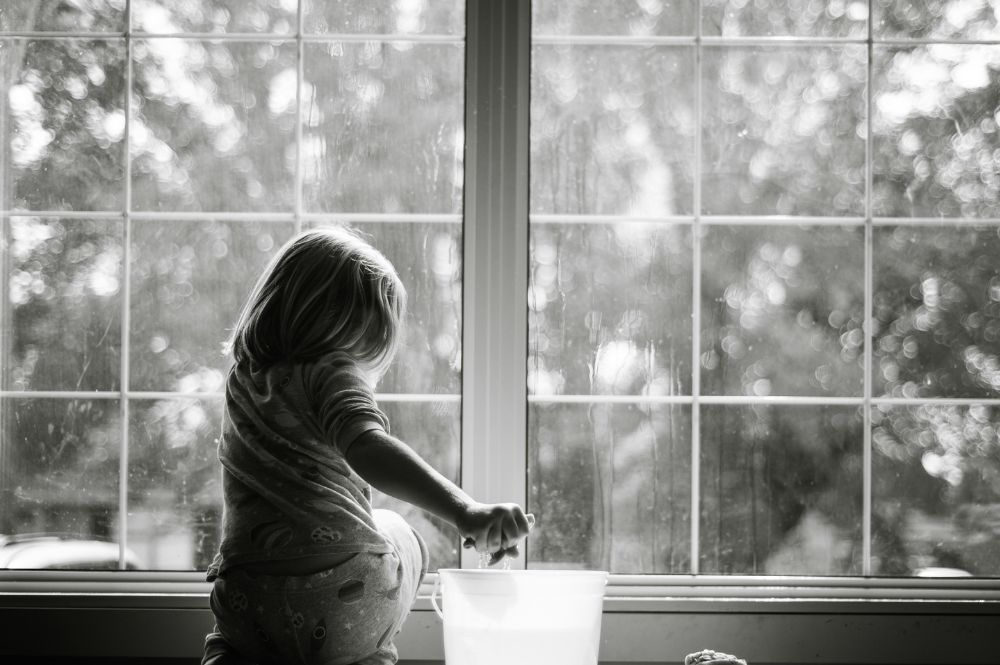
Inviting Children Into Meaningful Work
Teaching life skills to young children during these everyday moments creates lasting habits that help them grow into capable, confident individuals.
These early years are the perfect time to lay a foundation of practical skills and habits that will serve your child for a lifetime. Simple tasks like folding laundry, packing a bag, or helping in the kitchen may seem small, but they build confidence, independence, and a sense of belonging within family life.
When we invite young children into real, meaningful work at home, we’re not just teaching chores—we’re raising capable, thoughtful members of society who know they have something valuable to contribute.
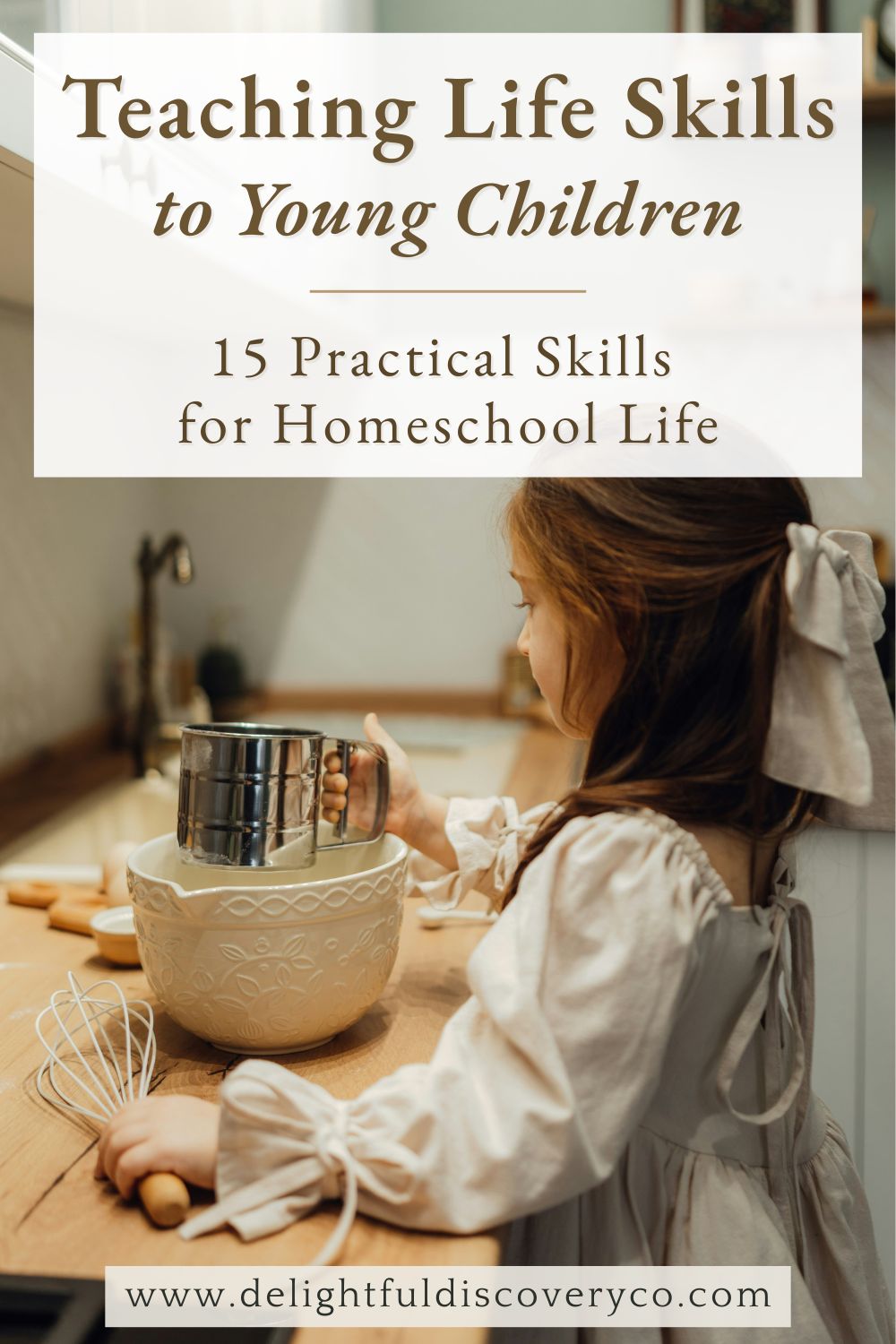

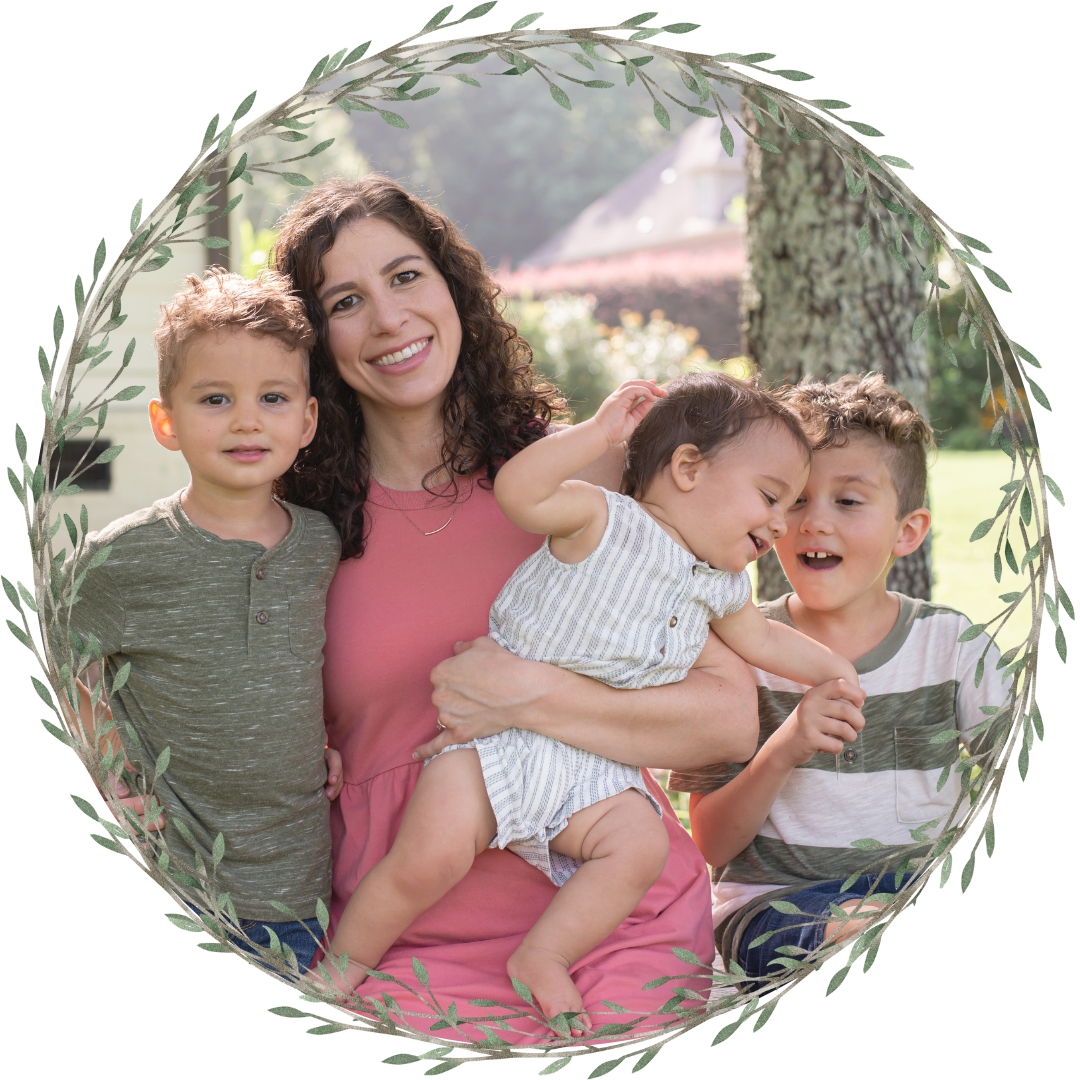





0 Comments